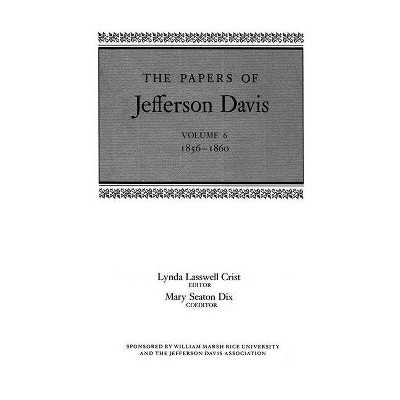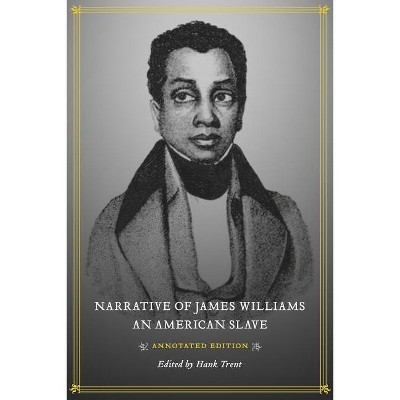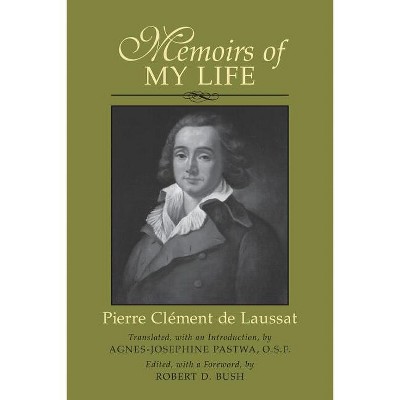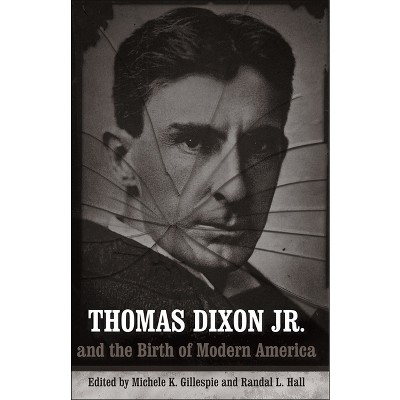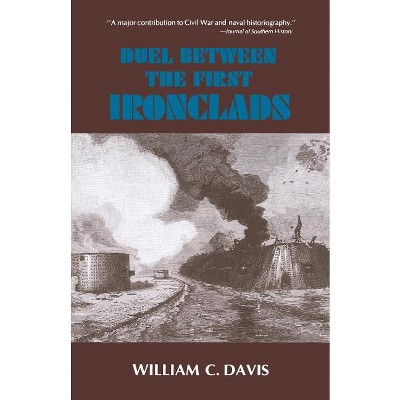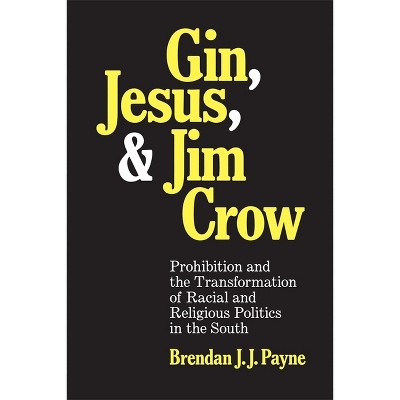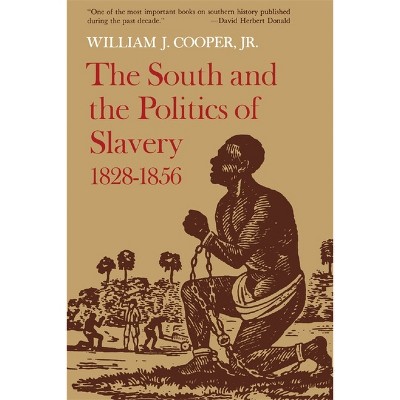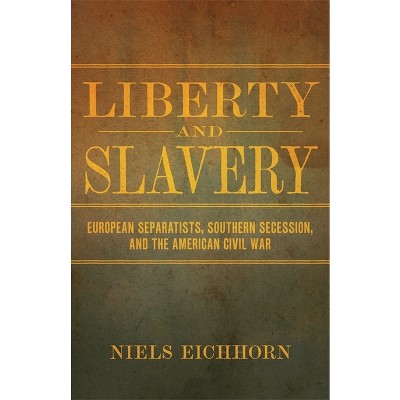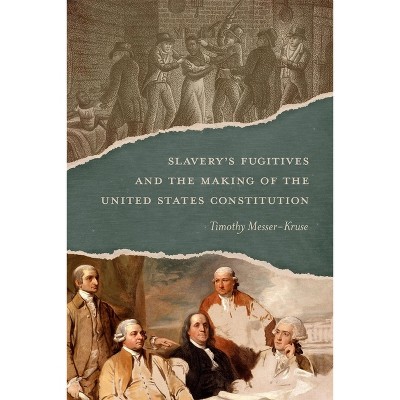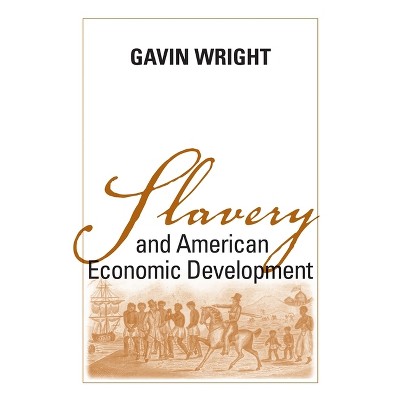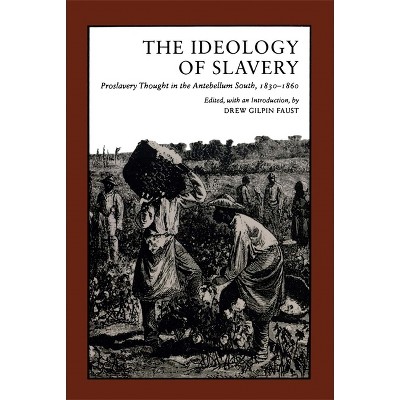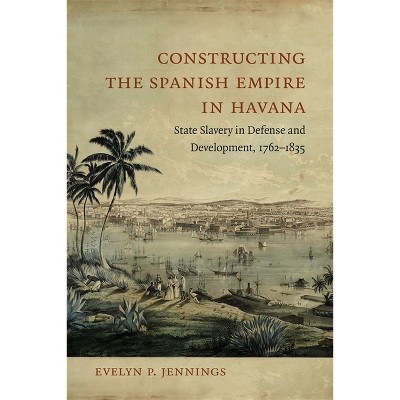Medicine and Healing in the Age of Slavery - by Sean Morey Smith & Christopher Willoughby (Hardcover)

About this item
Highlights
- CONTENTS: Foreword, Vanessa Northington Gamble "Introduction: Healing and the History of Medicine in the Atlantic World," Sean Morey Smith and Christopher D. E. Willoughby "Zemis and Zombies: Amerindian Healing Legacies on Hispaniola," Lauren Derby "Poisoned Relations: Medical Choices and Poison Accusations within Enslaved Communities," Chelsea Berry "Blood and Hair: Barbers, Sangradores, and the West African Corporeal Imagination in Salvador da Bahia, 1793-1843," Mary E. Hicks "Examining Antebellum Medicine through Haptic Studies," Deirdre Cooper Owens "Unbelievable Suffering: Rethinking Feigned Illness in Slavery and the Slave Trade," Elise A. Mitchell "Medicalizing Manumission: Slavery, Disability, and Medical Testimony in Late Colonial Colombia,"Brandi M. Waters "A Case Study in Charleston: Impressions of the Early National Slave Hospital," Rana A. Hogarth "From Skin to Blood: Interpreting Racial Immunity to Yellow Fever," Timothy James Lockley "Black Bodies, Medical Science, and the Age of Emancipation," Leslie A. Schwalm "Epilogue: Black Atlantic Healing in the Wake," Sharla M. Fett
- About the Author: Sean Morey Smith is a postdoctoral project manager at the Humanities Research Center at Rice University and a Lapidus Center fellow at the Schomburg Center for Research in Black Culture.
- 240 Pages
- Social Science, Slavery
Description
About the Book
"To date, every scholarly book on the history of medicine and slavery has a single author. Each is thus beholden to the practical limitations of single-authored texts. "Medicine and Healing in the Age of Slavery," by contrast, brings together scholars of diverse places and empires around the Atlantic to make a novel intervention into these histories by including diverse actors, wide-ranging periodization, and spanning across multiple empires. Contributors provide perspectives on sites in Africa, Europe, and the Americas. They examine the historical constructions of health and medicine among indigenous Americans, enslaved and free Africans and their descendants, and Europeans and Euro-Americans. The collection serves as a state-of-the-field picture of the history of slavery and medicine. Contributors include several award-winning historians, such as Lauren Robin Derby, Sharla Fett, and Leslie Schwalm; authors of important, recent monographs on slavery and medicine, such as Deirdre Cooper Owens and Rana Hogarth; and emerging scholars in the field of slavery and medicine. The variety of contributors in terms of rank, expertise, and experience allows the volume to take stock of the past, present, and future of a field of inquiry whose development has accelerated in the last decade. "Medicine and Healing in the Age of Slavery" illuminates the everyday practices of dealing with disease and illness that were fundamental to the order of slavery and the construction of race. The history of medicine and healing is a core facet of the early Atlantic World: bodies both sick and well were specific sites for contests of power, cultural exchange, and identity-making. The volume demonstrates how larger cosmologies of the Atlantic World-such as Enlightenment rationalism, Taino Zemis (stone idols), and various Afro-Atlantic spiritual traditions from Haitian Voodoo to Yoruba-constructed medicine and healing. Not only are the chapters in the collection topically diverse, they collectively cover the temporal breadth of Atlantic slavery. Essays span from the early enslavement of indigenous people in the Caribbean to the emancipation of slaves in the United States. Likewise, contributors consider the British, Portuguese, Spanish, French, and Dutch empires. By breaking down traditional temporal and geographical borders, the contributors ask to what degree the spaces of enslavement around the Atlantic shared the experienced disease, healing, and medicine, and to what degree they were historically specific and contingent. The volume complicates Western biomedicine's assumptions as a unique healing tradition, revealing how its modern instantiation depended to a significant extent on the bodies and expertise of enslaved and free people of color in colonial spaces. Ultimately, the collection uses this comprehensiveness to argue that medical and healing traditions framed the Atlantic slave system's lived experience. Its essays' foundational nature positions the volume to provoke future studies in both medical and Atlantic history"--Book Synopsis
CONTENTS:
Foreword, Vanessa Northington Gamble "Introduction: Healing and the History of Medicine in the Atlantic World," Sean Morey Smith and Christopher D. E. Willoughby "Zemis and Zombies: Amerindian Healing Legacies on Hispaniola," Lauren Derby "Poisoned Relations: Medical Choices and Poison Accusations within Enslaved Communities," Chelsea Berry "Blood and Hair: Barbers, Sangradores, and the West African Corporeal Imagination in Salvador da Bahia,1793-1843," Mary E. Hicks "Examining Antebellum Medicine through Haptic Studies," Deirdre Cooper Owens "Unbelievable Suffering: Rethinking Feigned Illness in Slavery and the Slave Trade," Elise A. Mitchell "Medicalizing Manumission: Slavery, Disability, and Medical Testimony in Late Colonial Colombia,"
Brandi M. Waters "A Case Study in Charleston: Impressions of the Early National Slave Hospital," Rana A. Hogarth "From Skin to Blood: Interpreting Racial Immunity to Yellow Fever," Timothy James Lockley "Black Bodies, Medical Science, and the Age of Emancipation," Leslie A. Schwalm "Epilogue: Black Atlantic Healing in the Wake," Sharla M. Fett
Review Quotes
Medicine and Healing in the Age of Slavery is a major contribution to the fields of medical history, the history of slavery, and the history of the Atlantic world. The book brings together an impressive and diverse group of experts to create a uniquely broad and rich picture of the intersecting histories of slavery and medicine. Straddling social, economic, political, and cultural history, the essays in this volume make explicit the complicit work that the early modern state and the medical establishment played in the modeling of ideas about race, labor, and colonialism. More fundamentally, and by emphasizing the histories of people of African descent, the volume signals a fundamental shift in the field of medical history. It makes clear that any work exploring the intersections between medicine and slavery has to depart from a serious engagement with the worldviews, narratives, and lived experiences of Black historical actors (including healers and patients). This book is a must-read for anyone interested in the history of healing in the Atlantic World, the history of slavery, and, more generally, the histories of medicine and healing.-- "Pablo F. Gómez, author of The Experiential Caribbean: Creating Knowledge and Healing in the Early Modern Atlantic"
Medicine and Healing in the Age of Slavery is at the cutting-edge of the history of medicine and slavery. By placing enslaved people at the center of the volume, this emerging-generation of scholars quite brilliantly embody the promise of Diasporic studies. Their essays persuasively decenter Western biomedical frameworks as the exclusive driving force in investigating the history of medicine and health.-- "Jim Downs, author of Sick from Freedom: African-American Illness and Suffering during the Civil War and Reconstruction"
Thomas Kuhn wrote that "a paradigm is prerequisite to perception." Medicine and Healing in the Age of Slavery, an exciting, chronologically expansive, global volume that liberates African diasporic medicine from the paradigm of the dominant Western medical gaze. Yet it is one thing to escape the confines of a straitened medical gaze and quite another to meticulously document the wider historical prospect. This dynamic collection of papers from a 2018 symposium at Rice University does both persuasively.
Its compulsively readable, harmonious and far-ranging assortment of papers limns parallels between sangradores and European barber-surgeons, acknowledges the primacy of non-Western advances such as smallpox variolation and details the integration of social and musical dimensions to supplement biophysiological care that once were widely dismissed as cultural curiosities of 'primitives'. Engaging writing and arresting insights stud its pages.
You won't be able to put this book down and you will emerge with a fresh, deep education in the contemporary understanding and future directions of medical history largely freed of the historical blinders of race.
"This collection deserves praise for its careful attention to the human experience of enslavement. It offers a compelling call to address the ongoing legacies of this racialized violence in the contemporary medical industrial complex."--Choice
This remarkably rich collection, spanning diverse healing traditions across the Atlantic World unsettles easy assumptions about the dominance of western biomedicine. Centering the complex and highly contested interactions among Europeans, Africans, and the indigenous peoples of the Americas, the collection rises above monolithic understandings about medicine. Medicine's deep entanglement and debt to coloniality and enslavement can no longer be rendered invisible thanks to the erudition of this broad range of interdisciplinary, international scholars.-- "Sasha Turner, author of Contested Bodies: Pregnancy, Childrearing, and Slavery in Jamaica"
About the Author
Sean Morey Smith is a postdoctoral project manager at the Humanities Research Center at Rice University and a Lapidus Center fellow at the Schomburg Center for Research in Black Culture.
Christopher D. E. Willoughby is the Molina Fellow in the History of Medicine and Allied Sciences at the Huntington and a Visiting Scholar in the Charles Warren Center for Studies in American History at Harvard University.